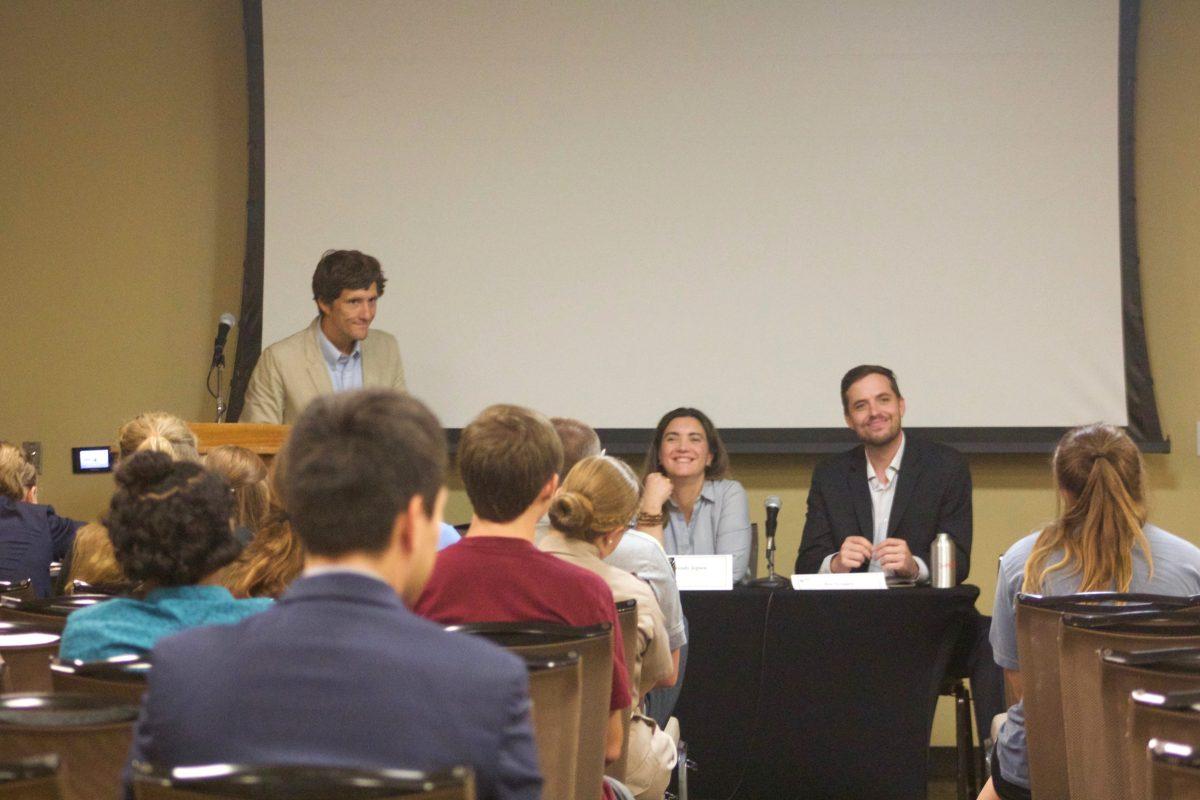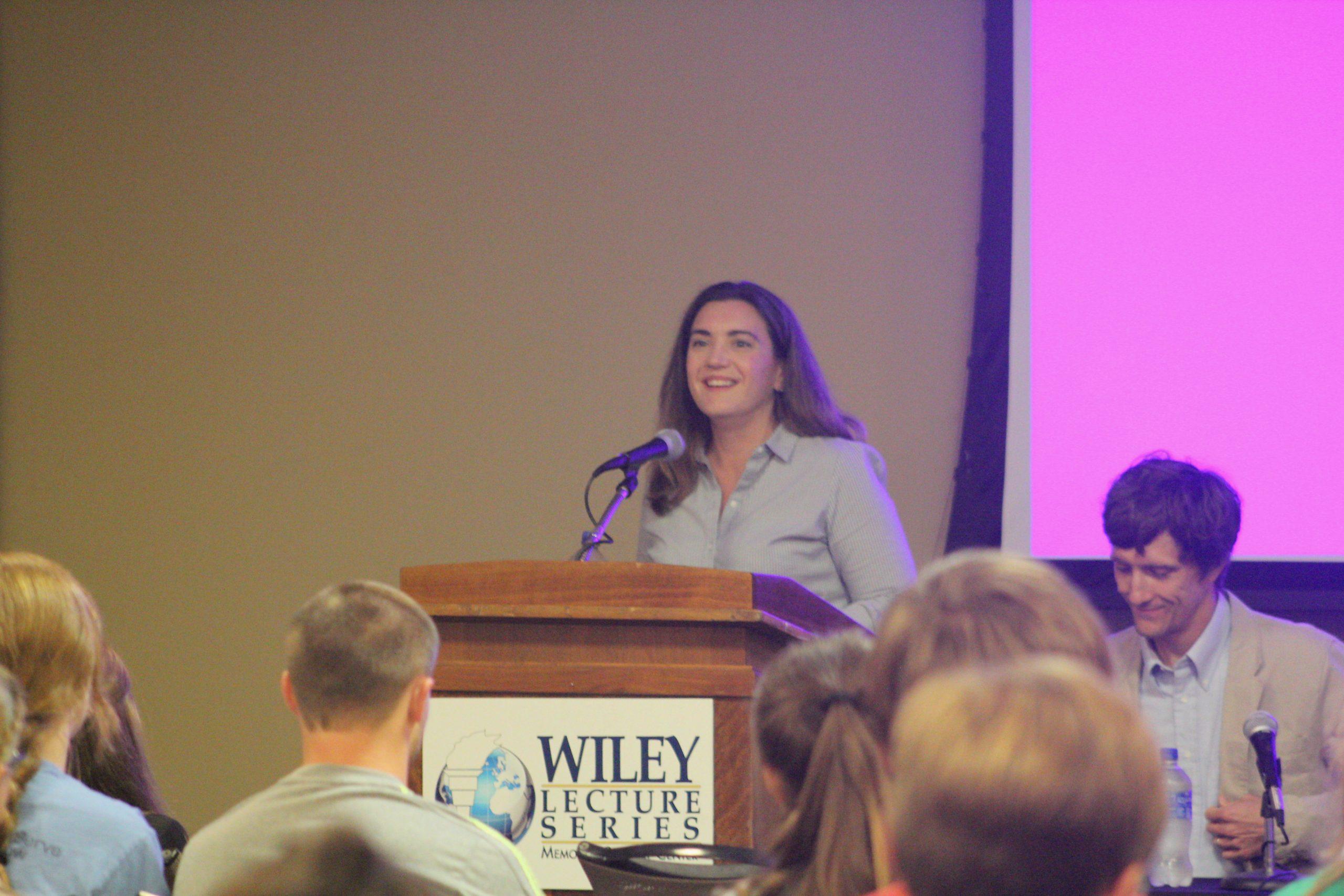Three panelists from diverse academic backgrounds convened Wednesday night in the Memorial Student Center for “The Environment and Our Posterity.” The event, hosted by Wiley Lecture Series, aimed to discuss various environmental concerns and how the United States Constitution creates a framework for citizens to take action in the collective environmental interest.
Professor of Law Timothy Mulvaney served as the lead panelist Wednesday night, alongside Professor of Geography Dr. Wendy Jepsen and Directory of the Texas Public Interest Research Group Bay Scoggin. Jepsen and Scoggin began the event by discussing how their disciplines interact with environmental concerns.
“The Constitution is a framework that opens up possibilities to obtain what could be seen as justice, but in and of itself is not justice,” Jepson said.
Jepsen defined environmental justice as the even distribution of environmental risks and burdens among different social, economic and ethnic groups, emphasizing that it could include a disproportionate enforcement of environmental laws and regulations depending on the communities affected by burdens like pollution.
“Participation in environmental decision making is critical to thinking through what justice is. It’s not just an outcome,” Jepson said.
Jepsen’s speech outlined the importance of the First Amendment right to protest and assembly as a cornerstone of environmental change. The recent struggles in Flint Michigan and Standing Rock served as examples of First Amendment successes, according to Jepsen.
Scoggin described himself as an advocate for the public’s interest, with his hands in different pots, applying his trade widely.
“I work in every field that I can, which is great for my ADD but terrible for my productivity,” Scoggin said. “The environment being good, being safe and being healthy is good for all of us. Every single one of us has a vested stake in a safe and healthy environment.
Mulvaney took the floor to speak about and advise against organizations that have an interest in spreading misinformation about the environment and deregulating industry standards.
Following along with the Constitution-themed presentation, Scoggin explained the importance of government in solving environmental problems.
“How do we solve these collective action problems? Well typically in situations where the market will not provide a solution that is beneficial, the government is the organization that steps in and says ‘No, we are the people and we have a vested interest in all of the citizens of this land,’” Scoggin said.
Scoggin said the government is the organization that should be regulating, prohibiting, taxing and incentivizing actions that would lead to a better environment for all Americans.
At the conclusion of the panelist speeches, a question and answer session began with the common question of ‘At what point do we have to give up economic growth and viability to pursue environmental protectionism?’
“Environmental protectionism and economic growth is a false binary that is overused,” Jepsen said. “It really doesn’t address the fact that you can have prosperity that is woven into environmental policies that protect the environment.”
The audience’s engagement at the event shed light on the new wave of environmental protection’s social importance, Mulvaney said.
Wiley Lecture Series: The Environment and Our Posterity
September 22, 2017
Donate to The Battalion
Your donation will support the student journalists of Texas A&M University - College Station. Your contribution will allow us to purchase equipment and cover our annual website hosting costs.





















